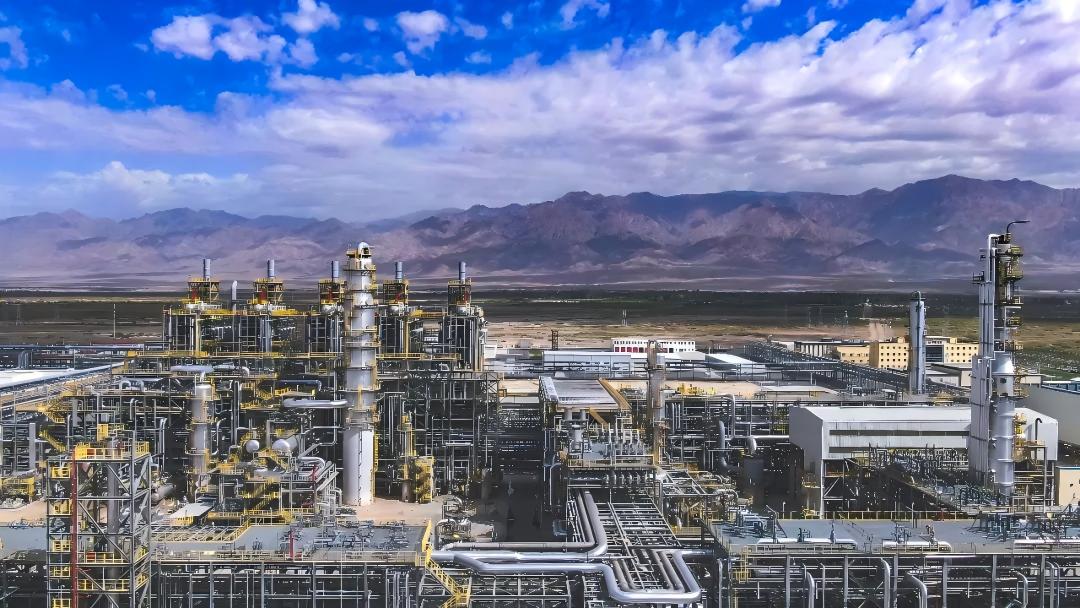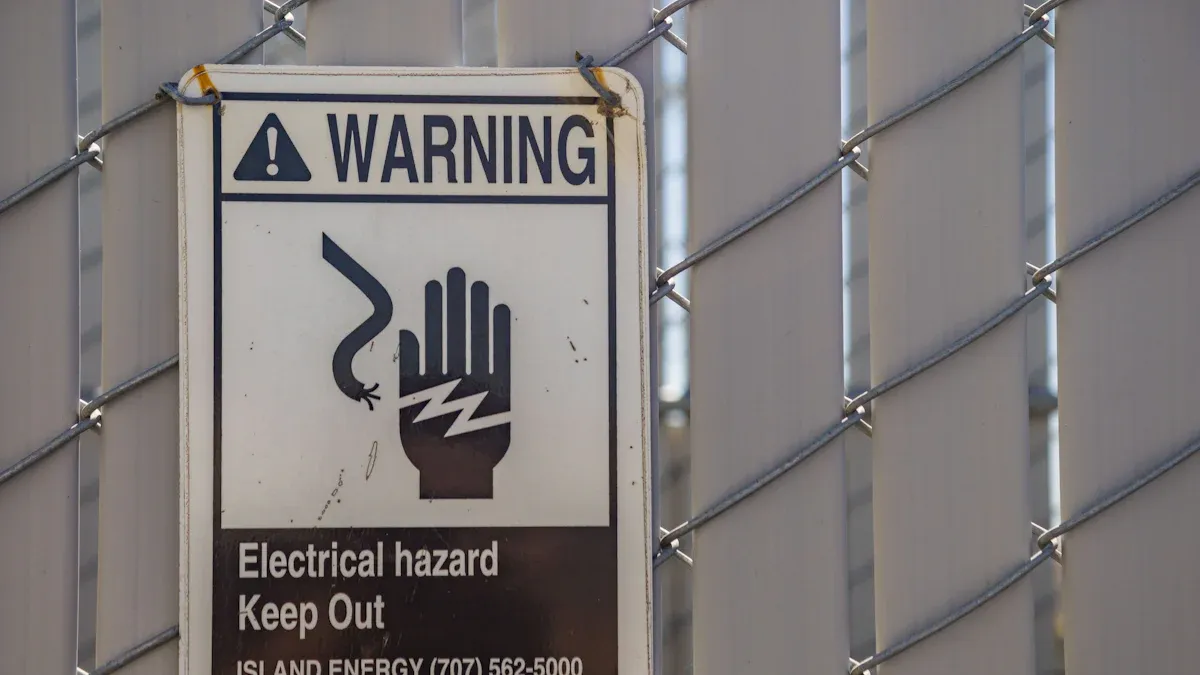Choosing the right explosion proof telephone saves lives in chemical plants. Joiwo’s explosion Proof telephone used in Xinjiang Dushanzi Tarim Ethylene Project stands out for its rugged build, international certifications, and reliable operation in harsh environments.

Key Takeaways
- Explosion proof telephones protect workers by preventing sparks or heat from igniting flammable gases or dust in chemical plants, ensuring safety in hazardous environments.
- Certified devices like Joiwo’s meet strict international standards such as ATEX and IECEx, helping plants comply with safety laws and pass inspections easily.
- Durable telephones with features like corrosion resistance, noise cancellation, and smart connectivity improve communication reliability and efficiency during emergencies.
Why Explosion Proof Telephones Matter

Safety in Hazardous Environments
Chemical plants face many dangers from flammable and explosive substances. Workers often handle chemicals such as ammonia, acetone, toluene, hydrogen sulfide, chlorine, natural gas, and even nitroglycerin. These materials can create explosive atmospheres. Electrical equipment, including telephones, must not become a source of ignition.
- Explosion proof telephones use special enclosures that contain sparks or flames inside the device.
- These enclosures resist corrosion and high temperatures, making them reliable in harsh plant conditions.
- Devices like Joiwo’s explosion proof telephone limit electrical and thermal energy, so they cannot ignite gases or dust.
- Accessories, including batteries and chargers, also meet strict safety standards.
Note: Chemical manufacturing accounted for 17% of all industrial fires and explosions in 2023. Using explosion proof telephones helps reduce these risks and keeps workers safe.
Joiwo’s explosion proof telephone stands out for its robust build and ability to operate safely in the most hazardous zones, ensuring continuous communication even during emergencies.
Compliance with Industry Standards
Regulatory bodies require chemical plants to use certified explosion proof equipment. These standards ensure that devices do not cause accidents in explosive atmospheres.
| Industry Standard | Description | Region |
|---|---|---|
| ATEX (Directive 2014/34/EU) | Mandatory for explosive atmospheres in the EU | Europe |
| IECEx | International explosion protection certification | Global |
| UL913 | U.S. standard for intrinsic safety | USA |
| CSA | Canadian certification for hazardous locations | Canada |
Joiwo’s explosion proof telephone meets major certifications like ATEX and IECEx. This compliance helps chemical plants meet legal requirements and maintain safe operations. Reliable certification also means easier approval during safety inspections and audits.
Key Features and Certifications
ATEX, IECEx, UL, and FM Certifications Explained
Explosion proof telephones must meet strict international standards to ensure safety in hazardous environments. The main certifications include ATEX (EU), IECEx (global), UL, and FM (North America). Each certification uses different testing methods and classification systems.
| Certification | Geographic Scope | Certification Process | Classification System | Markings / Recognition |
|---|---|---|---|---|
| ATEX | European Union | Self-certification with third-party testing | Zones 0,1,2 (gases); Zones 20-22 (dust) | CE and Ex markings |
| IECEx | Global | Third-party certification | Zones 0,1,2 (gases); Zones 20-22 (dust) | IECEx marking |
| UL | North America | Third-party testing by UL | Class I/II, Division 1/2 (gas/dust) | UL mark |
| FM | North America | Third-party testing by FM | Class I/II, Division 1/2 (gas/dust) | FM mark |
Joiwo’s explosion proof telephone holds multiple certifications, making it suitable for chemical plants worldwide and ensuring compliance with regional safety laws.
Durability and Environmental Protection Ratings
Explosion proof telephones must withstand harsh conditions found in chemical plants. High durability and environmental protection ratings, such as IP66 and IP67, keep devices safe from dust, water, and corrosive chemicals. These ratings prevent harmful substances from entering the device, reducing the risk of failure or ignition.
- Corrosion-resistant aluminum alloy housings
- High impact protection (IK10)
- Reliable operation in extreme temperatures and humidity
- Weatherproof keypads and noise-canceling microphones
Joiwo’s explosion proof telephone uses robust materials and advanced sealing technology, ensuring long-term performance and safety in the toughest environments.
Connectivity and Integration Options
Modern explosion proof telephones offer advanced connectivity and integration features. Chemical plants benefit from:
- Wireless communication for flexible deployment
- Integration with AI and IoT systems for real-time monitoring
- Support for predictive maintenance and remote diagnostics
Joiwo’s explosion proof telephone supports these modern technologies, helping chemical plants improve safety, efficiency, and communication reliability.
How to Choose the Right Telephone
Assessing Area Classification and Hazard Zones
Chemical plants must first identify the specific hazardous zones where telephones will be used. Hazardous area classification involves analyzing the presence and likelihood of flammable gases, vapors, or dust. Zones and divisions, such as Zone 0, 1, 2 or Class I, II, III, help determine the risk level. Equipment for Zone 0 or Class I Division 1 must offer the highest level of protection. The table below shows how area classification affects equipment requirements:
| Hazardous Area Zone | Equipment Protection Level | Description of Protection Type |
|---|---|---|
| Zone 0, 1, 2 | Ga, Gb, Gc | Prevents ignition by enclosing parts or limiting temperature and sparks |
| Zone 20, 21, 22 | Da, Db, Dc | Protects against explosive dust with robust enclosures |
Joiwo’s explosion proof telephones meet strict international standards, making them suitable for the most demanding zones in chemical plants.
Evaluating Durability, Battery Life, and Repairability
Durability is essential for devices exposed to harsh chemicals, dust, and moisture. Phones with high IP ratings, such as IP66 or IP67, resist water and dust, ensuring long-term reliability. Lithium-ion batteries in rugged telephones typically last 2–3 years under normal use. While robust sealing can make repairs more challenging, many models balance durability with moderate repairability. Joiwo’s explosion proof telephones use corrosion-resistant materials and advanced sealing, providing reliable performance and a practical balance between toughness and serviceability.
Considering Connectivity, Integration, and Smart Features
Modern explosion proof telephones must support advanced connectivity and smart features. Operators value global LTE support, push-to-talk communication, and compatibility with Android OS for running essential apps. Customizable buttons and glove-friendly designs improve usability in the field. Safety certifications like ATEX and IECEx remain critical. Joiwo’s explosion proof telephones offer seamless integration with plant communication systems, ensuring safe, efficient, and compliant operations in hazardous environments.
Joiwo’s Explosion Proof Telephone Used in Xinjiang Dushanzi Tarim Ethylene Project
Integrated Communication Solutions in the Tarim Ethylene Project
Joiwo’s explosion Proof telephone used in Xinjiang Dushanzi Tarim Ethylene Project plays a vital role in keeping workers safe and operations smooth. The project team selected these telephones for their strong safety features and reliable performance. The devices use intrinsic safety designs and rugged, sealed enclosures. These features prevent sparks or heat from causing explosions, even in dangerous environments.
- Joiwo’s explosion Proof telephone used in Xinjiang Dushanzi Tarim Ethylene Project meets strict ATEX and IECEx certifications.
- The telephones work well in extreme temperatures, high humidity, and areas with harsh chemicals.
- Noise-canceling microphones and programmable keypads help workers communicate clearly, even in loud plant areas.
- The system connects with alarms and emergency shutdowns, so teams can respond quickly to any incident.
- Remote management lets staff check and fix phones without entering hazardous zones.
These advantages make Joiwo’s explosion Proof telephone used in Xinjiang Dushanzi Tarim Ethylene Project a trusted choice for integrated communication in large chemical plants.
Lessons Learned for Chemical Plant Applications
The experience with Joiwo’s explosion Proof telephone used in Xinjiang Dushanzi Tarim Ethylene Project offers valuable lessons for other chemical plants. Reliable communication tools reduce accident risks and keep operations running during emergencies. Plants benefit from devices that withstand tough conditions and support fast, clear communication.
- Joiwo’s explosion Proof telephone used in Xinjiang Dushanzi Tarim Ethylene Project lowers insurance costs by reducing risks.
- The phones help maintain operational continuity, even during unexpected events.
- Remote diagnostics and easy maintenance save time and protect workers from exposure.
Chemical plants looking to improve safety and efficiency can learn from the success of Joiwo’s explosion Proof telephone used in Xinjiang Dushanzi Tarim Ethylene Project. These telephones set a high standard for safety, durability, and smart integration.

